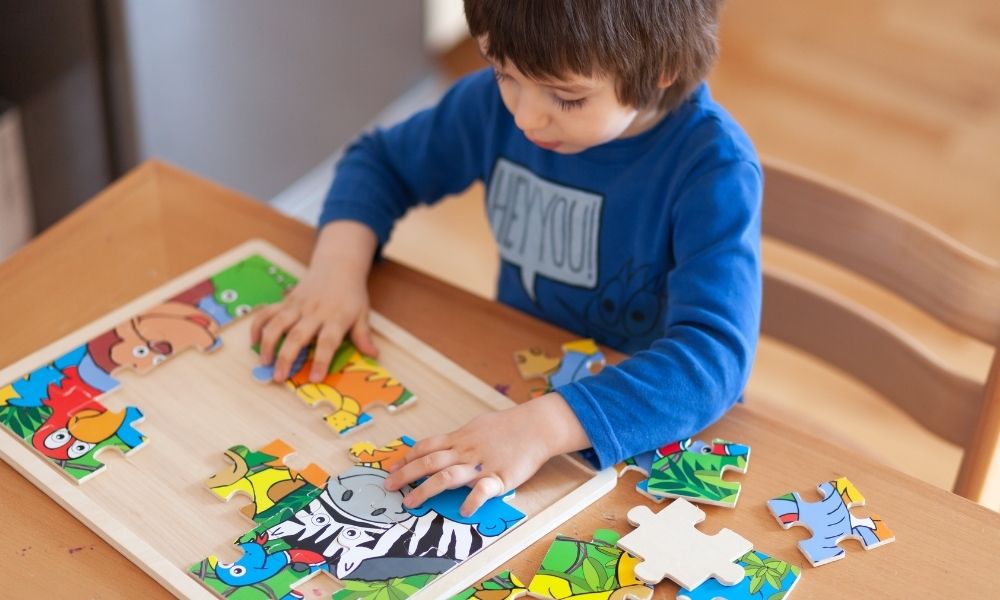Finding an activity that everyone universally loves is a difficult feat, especially for entertaining children with autism and other special needs. Fortunately, there are some things you can do that improve their well-being while having fun. These are the benefits of special needs children solving puzzles.
Develop Cognitive Skills
You can assist in improving a child’s cognitive ability with puzzles. They enable a youngster to perceive connections as a whole rather than as parts of a complete. This includes the alphabet, numbers, color recognition, and shape awareness. And putting together a puzzle of various cars, pets, or structures helps a child understand and identify these things as they put it together.
Distinguishing a dog from a cat and putting the pieces in accordingly can stimulate their brain while giving them a sense of accomplishment.
Increase Attention Span
Ideally, you should anticipate your child’s focus to last for about five minutes multiplied by their age. Therefore, a 5-year-old can go for 25 minutes until they want to move on. Of course, that’s just the general formula, considering all children react and learn differently.
Puzzles with fun themes and colors may entice children to problem-solve longer, improving their attention spans for other activities.
However, for kids to reap the full benefits of puzzles in terms of focus, you need to select appropriately for their age. If something is too difficult, the child may become irritated and give up. In contrast, puzzles that are too easy do not give enough difficulty to improve your child’s concentration and patience, so it’s vital you know how to select the right puzzle based on their needs.
Improve Hand-Eye Coordination
Children must practice coordinating their eyes and hands to do even mundane tasks like handwriting. Puzzles are perfect for young people’s hand-eye coordination, considering a toddler must carefully put the pieces together.
You can aid the child by giving them hints along the way, but limit your advice to that. Let them figure it out on their own instead of telling them where to put the piece. Figuring it out on their own improves their hand-to-eye coordination and lets them pride themselves that they did it alone.
Practice Social Skills
Children with special needs can achieve more from collaborating on puzzles that are appropriate for their ages. Those on the spectrum benefit from teamwork because it helps them start listening and communicating with others, which reduces their anxiousness and aids in the development of their speech. When they operate in a group dynamic, they get greater confidence in their social talents, helping them develop their social skills around their peers.
Gain Confidence
Dealing with autism on a day-to-day basis can be challenging because persons with autism must cope with circumstances that are less organized or result in more than one viable solution. It may be a fascinating and rigorous process to complete a puzzle. But there is an obvious problem to solve, and there is only one solution to that problem—putting it together. Unlike working through complicated day-to-day issues, solving puzzles have no answers other than completing them.
These five benefits of special needs children solving puzzles show you why it’s beneficial to invest in jigsaw puzzles for your child. The look of excitement when they put the last piece into place is more than worth the battle of working through the obstacles in their way.






